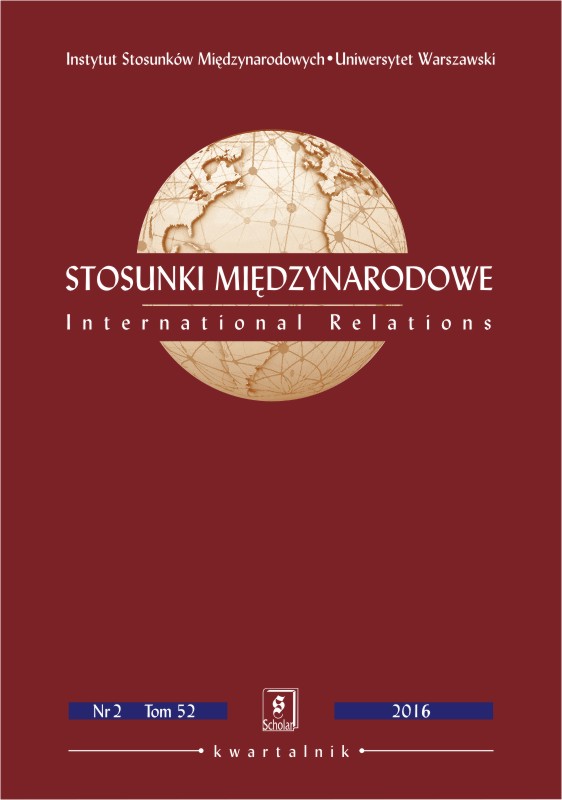Trustworthy Nuclear Sovereigns? India and Pakistan after the 1998 Tests
TRUSTWORTHY NUCLEAR SOVEREIGNS? INDIA AND PAKISTAN AFTER THE 1998 TESTS
Author(s): Kate Sullivan de Estrada, Nicholas J. WheelerSubject(s): Politics / Political Sciences, Politics, Political Theory, Political Sciences, International relations/trade
Published by: Wydawnictwo Naukowe Scholar Sp. z o.o.
Keywords: India; non-proliferation; nuclear weapons; Pakistan; trust; trustworthiness
Summary/Abstract: India and Pakistan both faced widespread international condemnation following their1998 nuclear tests. Today the two countries stand apart in the global nuclear order.Pakistan remains a nuclear outsider, while India has been labelled a responsiblenuclear state and permitted access to exceptional civil nuclear trading rights. Thisarticle offers an explanation for the divergent international responses to Indiaand Pakistan’s decision to become nuclear-armed states. Rather than presentinga materialist explanation for the differing responses of the international communityin terms of geopolitical, strategic and economic factors, or a normative approachthat focuses on shifting conceptions of India and Pakistan’s identities as politicalsystems, we focus instead on changes in individual and collective perceptions ofIndia’s trustworthiness. At the base of the starkly contrasting response to a nuclearIndia and a nuclear Pakistan, we argue, is an assessment that India can be trustedwith nuclear weapons, while Pakistan cannot. We show how India made the journeyfrom nuclear rogue to nuclear partner and demonstrate where Pakistan fell short.We conclude with some reflections on perhaps the most important question thatcan be asked of states and leaders in the nuclear age: who can be trusted with thepossession of nuclear weapons?
Journal: Stosunki Międzynarodowe
- Issue Year: 52/2016
- Issue No: 2
- Page Range: 289-306
- Page Count: 17
- Language: English

